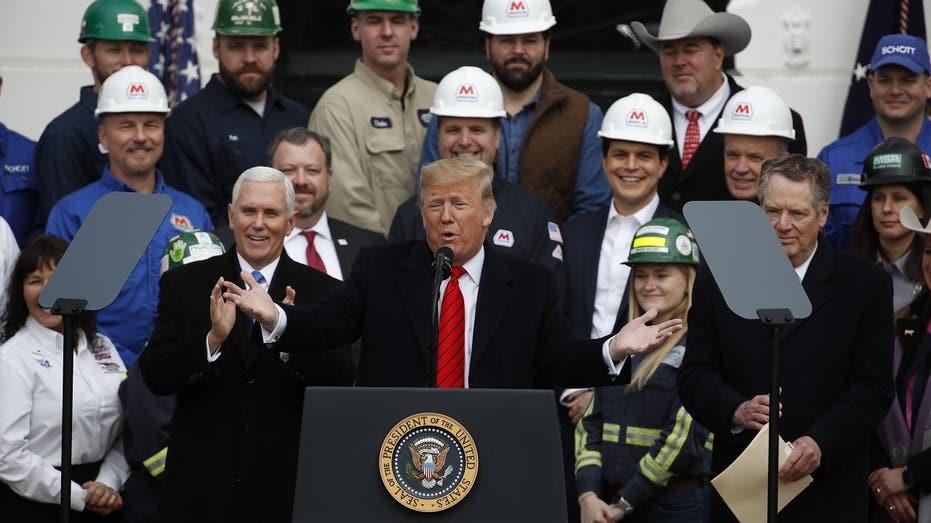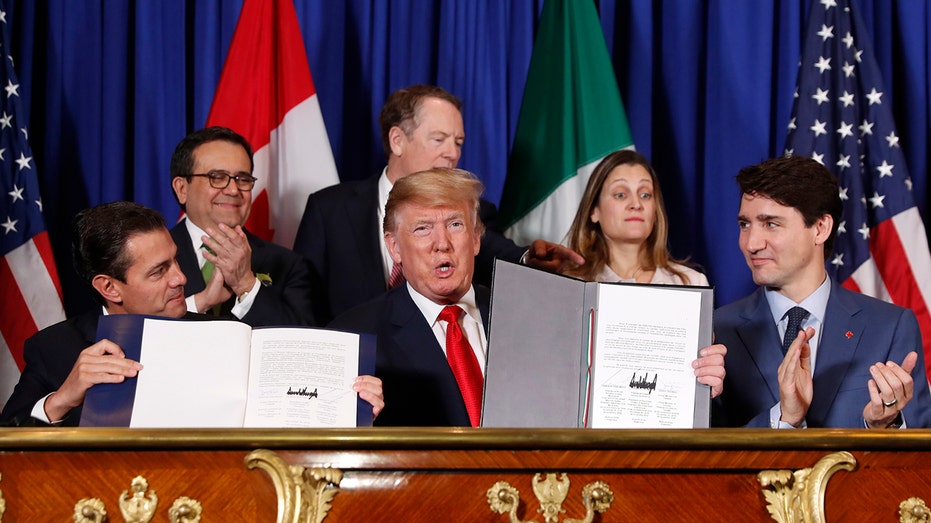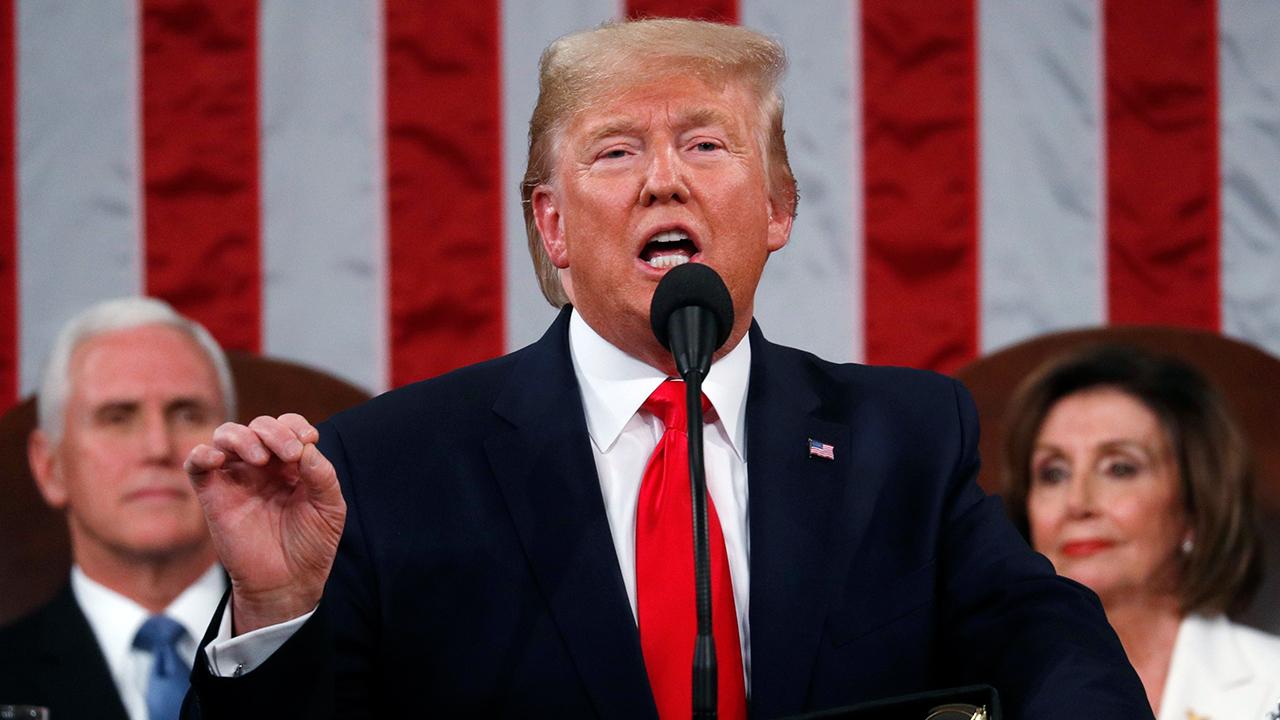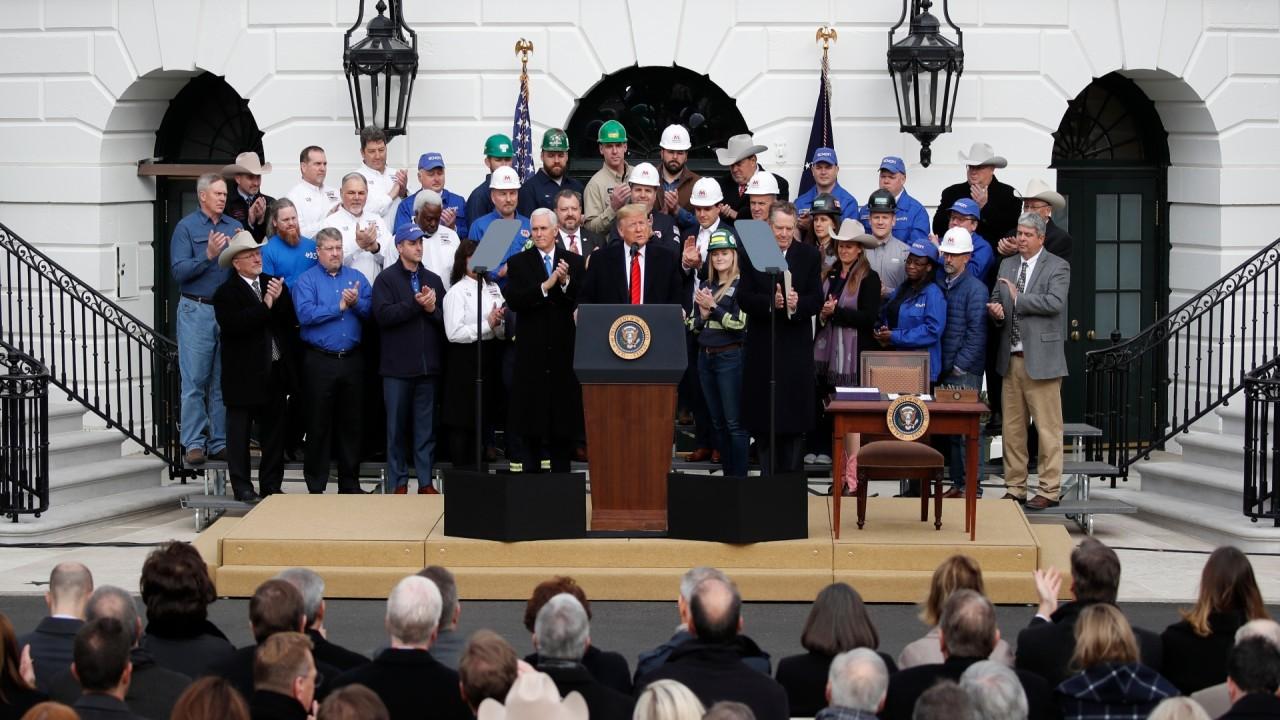What is USMCA?
North American trade deal covers more than $1.3 trillion of commerce and is estimated to create up to 589,000 jobs
President Trump and his surrogates tout the U.S.-Mexico-Canada Agreement as a trade deal that will create hundreds of thousands of jobs and even recession-proof the U.S. economy.
Trump signed the USMCA in a White House ceremony in January, but it won't begin to be implemented until Canada ratifies the deal. Canadian Prime Minister Justin Trudeau's opposition party, which controls the House of Commons, could hold up the country's ratification process.
WILBUR ROSS: USMCA, US-CHINA PHASE ONE DEAL WILL EQUATE TO $2T IN TRADE
Still, USMCA is expected to become fully finalized. Here are some of the changes that so-called NAFTA 2.0 will bring.
The deal covers more than $1.3 trillion of commerce and is the second major trade deal secured by the Trump administration this year.

Trump speaks during an event at the White House to sign a new North American trade agreement with Canada and Mexico, Jan. 29, 2020. (AP Photo/Alex Brandon)
READ THE FULL USMCA TRADE DEAL
"You're going to see more jobs all across the economy, in the automobile sector, in the agricultural sector and of course in the energy sector as well," Energy Secretary Dan Brouillette told FOX Business' Maria Bartiromo after the signing.
The USMCA requires 75 percent of automobile components be manufactured in the United States, Canada or Mexico in order to avoid tariffs. By 2023, some 40 to 45 percent of automobile parts must be made by workers who earn at least $16 an hour.
The agreement is expected to create 80,000 new jobs tied to the auto industry and bring in up to $30 billion of new investment in the sector. The pact will also open new markets for American wheat, poultry and eggs, among other things.
"This is a colossal victory for our farmers and ranchers," Trump said at the signing ceremony. "Everybody said this was a deal that could not be done," he added, "but we got it done."
10 SENATORS WHO VOTED AGAINST USMCA
Once fully implemented, the USMCA is expected to lift U.S. gross domestic product by as many as 1.2 percentage points and create up to 589,000 jobs, according to the International Trade Commission.
After the trade deal was approved by the Senate on Jan. 16, by a vote of 89 to 10, Sen. Chuck Grassley, R-Iowa, hailed it as a "major achievement for President Trump and a very big win for the American people."

FILE - Trump, Canada's Prime Minister Justin Trudeau, right, and Mexico's President Enrique Pena Neto, left, participate in the USMCA signing ceremony, Nov. 30, 2018 in Buenos Aires, Argentina. (AP Photo/Pablo Martinez Monsivais)
Sen. Pat Toomey, R-Pa., was the sole Senate Republican to vote against the deal. A free-trade advocate, he has long been critical of USMCA.
CLICK HERE TO READ MORE ON FOX BUSINESS
"I'm convinced that USMCA is the first trade agreement the U.S. has ever entered into ... in which the intent was to diminish trade," Toomey said on the Brookings Institution's "Dollar & Sense" podcast.
"We have a trade deficit with Mexico," Toomey said. "Every credible and reputable economist I know thinks that doesn't matter a bit in terms of measuring economic health. But that's not the view of the administration. I believe that they set out to renegotiate NAFTA for the purpose of diminishing trade with Mexico."
GET FOX BUSINESS ON THE GO BY CLICKING HERE
FOX Business' Jonathan Garber contributed to this report.





















